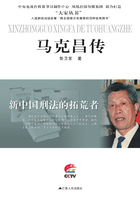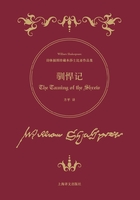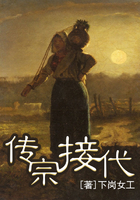The servility of this Parliament had left a deep impression on the public mind. It was the general opinion that England ought to be protected against all risk of being ever again represented, during a long course of years, by men who had forfeited her confidence, and who were retained by a fee to vote against her wishes and interests. The subject was mentioned in the Convention; and some members wished to deal with it while the throne was still vacant. The cry for reform had ever since been becoming more and more importunate. The people, heavily pressed by taxes, were naturally disposed to regard those who lived on the taxes with little favour. The war, it was generally acknowledged, was just and necessary; and war could not be carried on without large expenditure. But the larger the expenditure which was required for the defence of the nation, the more important it was that nothing should be squandered. The immense gains of official men moved envy and indignation. Here a gentleman was paid to do nothing. There many gentlemen were paid to do what would be better done by one. The coach, the liveries, the lace cravat and diamond buckles of the placeman were naturally seen with an evil eye by those who rose up early and lay down late in order to furnish him with the means of indulging in splendour and luxury. Such abuses it was the especial business of a House of Commons to correct. What then had the existing House of Commons done in the way of correction? Absolutely nothing. In 1690, indeed, while the Civil List was settling, some sharp speeches had been made. In 1691, when the Ways and Means were under consideration, a resolution had been passed so absurdly framed that it had proved utterly abortive. The nuisance continued, and would continue while it was a source of profit to those whose duty was to abate it. Who could expect faithful and vigilant stewardship from stewards who had a direct interest in encouraging the waste which they were employed to check? The House swarmed with placemen of all kinds, Lords of the Treasury, Lords of the Admiralty, Commissioners of Customs, Commissioners of Excise, Commissioners of Prizes, Tellers, Auditors, Receivers, Paymasters, Officers of the Mint, Officers of the household, Colonels of regiments, Captains of men of war, Governors of forts. We send up to Westminster, it was said, one of our neighbours, an independent gentleman, in the full confidence that his feelings and interests are in perfect accordance with ours.
We look to him to relieve us from every burden except those burdens without which the public service cannot be carried on, and which therefore, galling as they are, we patiently and resolutely bear. But before he has been a session in Parliament we learn that he is a Clerk of the Green Cloth or a Yeoman of the Removing Wardrobe, with a comfortable salary. Nay, we sometimes learn that he has obtained one of those places in the Exchequer of which the emoluments rise and fall with the taxes which we pay. It would be strange indeed if our interests were safe in the keeping of a man whose gains consist in a percentage on our losses. The evil would be greatly diminished if we had frequent opportunities of considering whether the powers of our agent ought to be renewed or revoked. But, as the law stands, it is not impossible that he may hold those powers twenty or thirty years.
While he lives, and while either the King or the Queen lives, it is not likely that we shall ever again exercise our elective franchise, unless there should be a dispute between the Court and the Parliament. The more profuse and obsequious a Parliament is, the less likely it is to give offence to the Court. The worse our representatives, therefore, the longer we are likely to be cursed with them.
The outcry was loud. Odious nicknames were given to the Parliament. Sometimes it was the Officers' Parliament; sometimes it was the Standing Parliament, and was pronounced to be a greater nuisance than even a standing army.
Two specifics for the distempers of the State were strongly recommended, and divided the public favour. One was a law excluding placemen from the House of Commons. The other was a law limiting the duration of Parliaments to three years. In general the Tory reformers preferred a Place Bill, and the Whig reformers a Triennial Bill; but not a few zealous men of both parties were for trying both remedies.
Before Christmas a Place Bill was laid on the table of the Commons. That bill has been vehemently praised by writers who never saw it, and who merely guessed at what it contained. But no person who takes the trouble to study the original parchment, which, embrowned with the dust of a hundred and sixty years, reposes among the archives of the House of Lords, will find much matter for eulogy.
About the manner in which such a bill should have been framed there will, in our time, be little difference of opinion among enlightened Englishmen. They will agree in thinking that it would be most pernicious to open the House of Commons to all placemen, and not less pernicious to close that House against all placemen.
To draw with precision the line between those who ought to be admitted and those who ought to be excluded would be a task requiring much time, thought and knowledge of details. But the general principles which ought to guide us are obvious. The multitude of subordinate functionaries ought to be excluded. Afew functionaries who are at the head or near the head of the great departments of the administration ought to be admitted.















